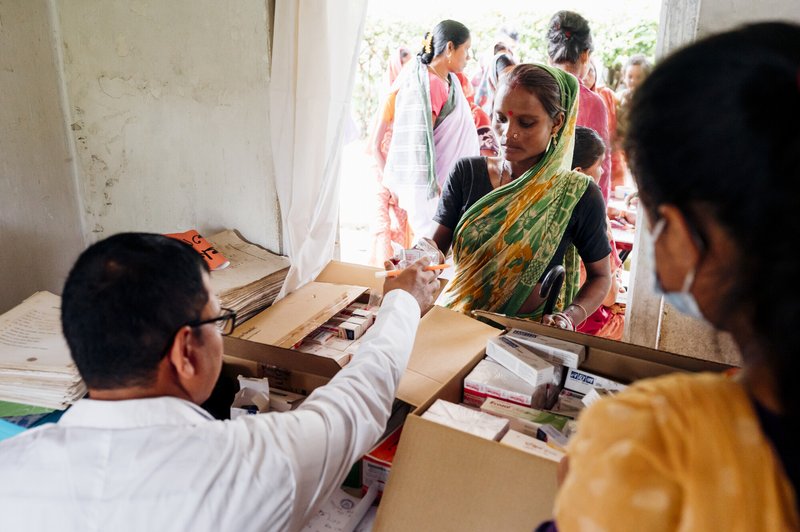World Health Day: The right to health must become a reality
April 7th marks World Health Day. This year the focus is “My Health My Right”. And work to protect and promote this right has never been more important.
On December 10, 1948, a landmark document was published. The UN adopted the Universal Declaration of Human Rights, setting out 28 fundamental rights that all people have. Article 25 enshrined the right to good health and wellbeing into international governance.
Last year, the global community marked the Declaration’s 75th anniversary. We celebrated the progress we’ve made, and called for continued commitment to human rights. That call will ring true for years to come. Because today, millions of people still cannot realise their right to health.
A right under threat
Across the world, health is suffering. And the challenges we as a global community need to address are immense.
Climate change, conflict and political instability, and economic crises are having devastating effects on people’s health. Families are being pushed deeper into poverty, forcing them to choose between healthcare and other basic needs. Health services are being disrupted, leaving millions without treatment and support.
These global crises are proving to be catastrophic for people affected by leprosy. Thousands of people are being diagnosed too late to prevent permanent disabilities. Many families have faced hunger in recent months in Niger, Sri Lanka, and Nigeria. Rates of anxiety and depression among people affected by the disease are high.
Against this backdrop of turmoil, our teams across the world are working tirelessly to make sure people affected by leprosy can realise their right to health.

In Bangladesh, our teams are running pop-up clinics to bring leprosy services into the heart of rural communities (pictured above). In Nigeria, peer counsellors are helping young people affected by leprosy to improve their mental health. At hospitals in India, medical teams are treating people who would not otherwise be able to afford healthcare.
And in communities across the world, people affected by leprosy are standing up for their right to health. They’re advocating for an end to stigma and discrimination that prevents them from accessing treatment. They’re calling for disability inclusion, so everyone can participate fully in society.
But without wider action, the challenges they face will only persist. Poverty will continue to deepen. Conflict, instability, and climate change will continue undermine the progress we have made. Leprosy will continue to spread.
We need global action and investment
In 2023, countries across the world recommitted to achieving the Sustainable Development Goals - to ensuring good health for all, ending poverty, and tackling climate change. Closer to home, the UK government has put leaving no-one behind at the heart of their global development agenda.
These promises cannot be just words. They must translate into action.
We need to see real progress on climate change and poverty reduction. Governments and institutions must build resilient and inclusive health systems.
And neglected tropical diseases can no longer be ignored. These conditions are rarely at the top of the global health agenda. And as a result, there is a significant gap in funding towards them. But with 1.6 billion people needing healthcare for a neglected tropical disease, and many more - including millions of people affected by leprosy - impacted by their wider impacts, we cannot afford inaction.
Imagine a world where thousands more people could get the cure for leprosy before it caused permanent disability. Where people could get follow up treatment and mental health support in their communities. Where poverty, discrimination, and structural barriers no longer stopped people from living a full, healthy life.
With global action and investment, this vision is possible. That's why addressing the needs of people affected by neglected tropical diseases and leprosy must be a cornerstone of global efforts to build a healthier, more just world.
These people are some of the poorest and most marginalised in the world. They are rarely heard, seen, or included. Yet their right to health is no less important than yours or mine. On World Health Day, this right must become a reality.